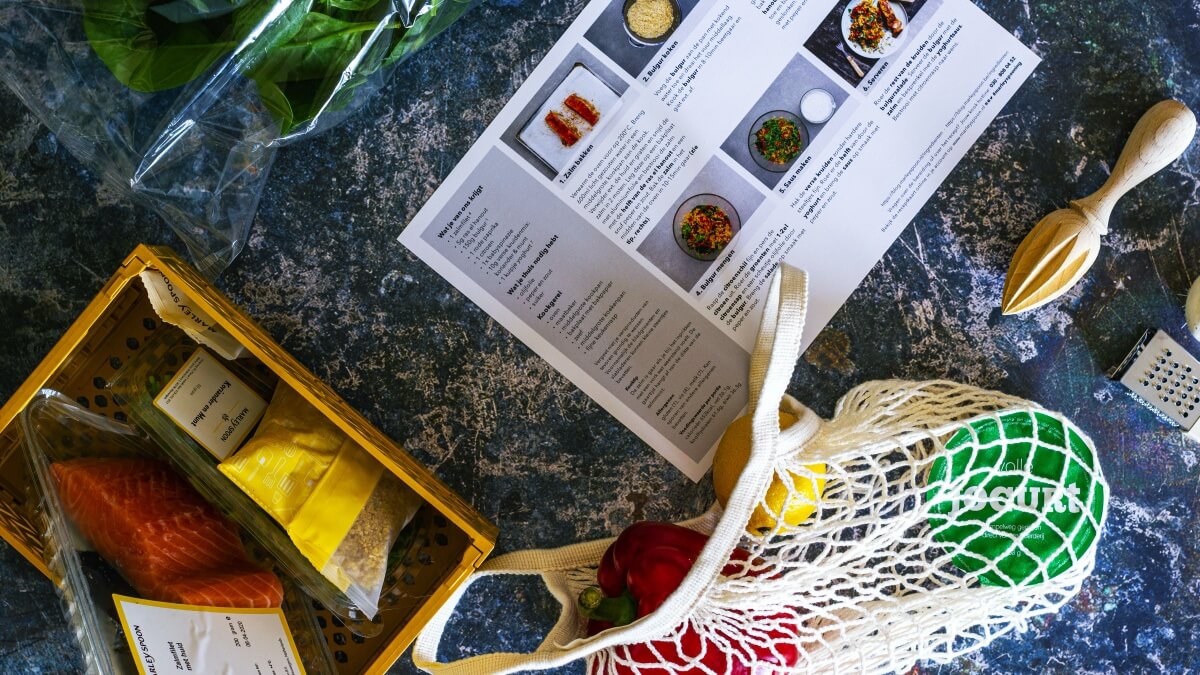Chefs, restaurateurs and hospitality staff in general, are typically goal-oriented folk who thrive on an organised approach. This is why a time of such epic uncertainty can be particularly stressful for those of us who like to plan ahead. But, in the new COVID-19 reality, we’re forced to embrace the chaos in order to survive it – we’ve compiled a list of tips to help feed your brainstorm and pivot your food business to weather the Coronavirus storm.
Some food businesses have the means to roll with the punches and keep trading during lockdown. Having watched other successful initiatives, we’ve learned that you shouldn’t try to do too much. Cut the menu right down to easily sourced items with healthy profit margins, and stick to what you know and do best. Take it slow, especially at the beginning – you’ll be faced with new teething issues, and loads of insights to help refine things along the way.
Adapting your food business
- Delivery and Pickup: Lockdown Level 4 allows takeaways and delivery, but making sure everything is safely prepared, looks and tastes great, and transports well, is a complex logistical beast. Some restaurants have opted to steer clear of third party delivery services, giving their staff the chance to become drivers – thus keeping more people employed and saving on some often very heavy fees. If you’re keen to go the independent route, you can now accept payments online with Yoco.
Pro tip: You can also sign up with Open Route, a new ordering and delivery platform that doesn’t charge a commission on orders. Meal kits: After several weeks of lockdown, most families are tired of long grocery queues and having to think up something to make every day. The popularity of pre-ordered meal kits has sky-rocketed, and the need for variety will only increase. Here, the practical considerations are more about keeping recipes simple, and using your facilities for packaging ingredients into their allotted portions. Meal kits can be sold on your website or social pages, with Yoco’s online payment portal taking care of the rest.
Online cooking classes/demos: Do you have a signature dish that your regulars are hankering for? Why not use video calls to host intimate cooking classes or demos, keeping your customers feeling connected and inspired. You could offer special group deals or discounts for posts and sharing on social, helping to build momentum and spread the word.
Become a Micro Market: As an eatery, you have access to bulk supply at better prices. Grocery shopping has become as much a hassle as an exposure to greater health risks. Supplement your menu with the option to purchase ingredients and prepared items (like dressings and sauces) – finally moving that excess stock from your freezer and drystore.
Switch it up: Adapting to hot meal delivery may not be practical for everyone, so rethinking the menu may be a better choice. Take what you have, plus what you can get good supply of at the moment, and tweak your product: why not try your hand at frozen convenience dinners, easy-heat meals, and deli options like pickles, preserves, sauces, and confection.
Get creative: Use current lifestyle challenges to feed your creativity: for example, if you’re doing meal kits or online demos, make them easy and fun for kids to get involved with too; focus on processes that don’t create a pile of dishes; or use recipes that have versatile leftover options to save time making lunch the following day. Also, with the whole world embracing a more stagnant lifestyle, healthy and low-calorie options (for the whole family) will become even more sought after.
Push Marketing: Use all your successful marketing channels proactively – let your customers know about everything you are doing to adapt, and how they can support you (where to go, how to order etc). If you’re stuck for ideas, open up the conversation and ask what they’re craving during lockdown.
Eyes on the Bottom Line: Make sure that whatever you do, you’re very tight on margins and keep costs in check. There’s no shame in simplifying things and only selling high-profit generating items. Nobody is expecting pre-lockdown levels of luxury or choice, so do the best you can with what you have.
If you simply cannot afford to change track, or your specific setup is not flexible enough to allow for it right now, don’t give up – there are still several options to take advantage of:
Closing your food business for now?
Gift Vouchers or Cards
This is a great way to increase cash flow, by asking loyal customers to purchase now and redeem later. It will also guarantee future visitors to your business, once you’re able to reopen. Yoco has now introduced Gift Vouchers as part of their online payment suite.
Register on the Support Small directory to keep your small business on the map.
Donations
It can feel very awkward to ask for handouts, but these are exceptional times and many want to help secure the future of their favourite local spots. Don’t be shy to create a donations page through Yoco’s Payment Page or a similar donations-based platform.
Sell Merch
If you’re lucky enough to have cleverly branded merchandise, there’s no reason not to keep selling it online – using your social media, website or online store. Don’t forget to market everything you do sell, on all channels.
Apply for Relief
It can feel overwhelming to apply for external relief, but these options are there for a reason.
Restaurant Community Resources and Relief Options
- RASA
- Eat Out Restaurant Relief Fund
- Tourism Relief Fund
- UIF
- The Oppenheimer (SAFT) Fund
- Satsa (tax relief)
- SMME Relief fund
You can read more about possible funding opportunities here and learn about how to apply for the COVID-19 TERS benefit for your employees here.
Looking for inspiration? We've got you covered
View this post on InstagramA post shared by Yoco (@yoco_za) on



